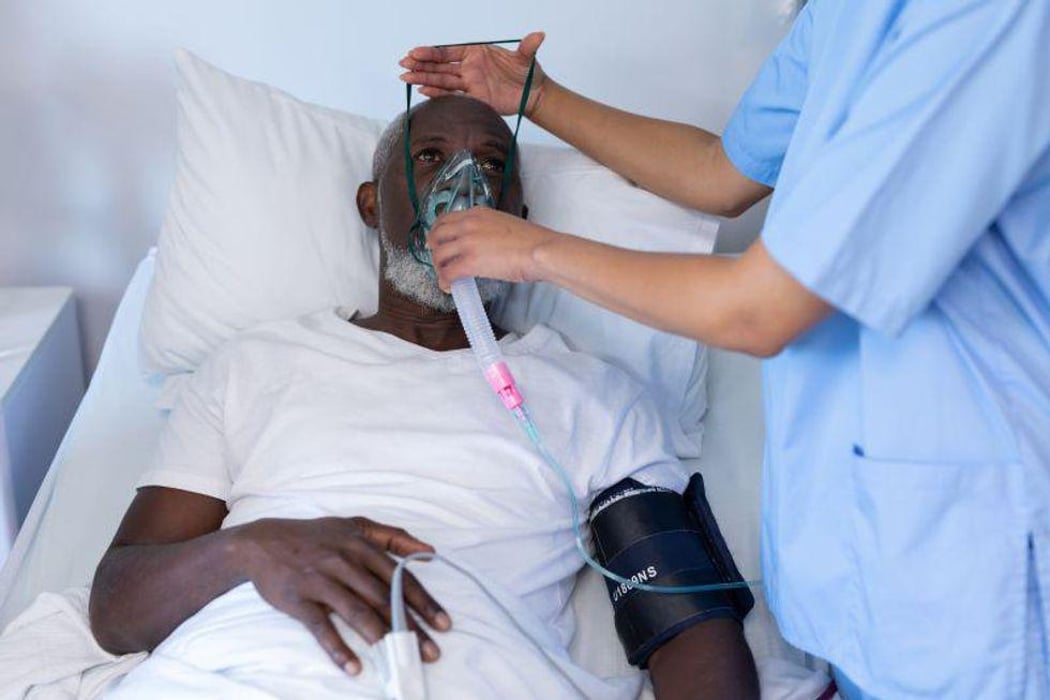Older Black Men Face Higher Risk of Death After Surgery

THURSDAY, March 2, 2023 (HealthDay News) -- Older Black men are more likely than others to die after surgery, according to a new study.
Black men have a higher chance of dying within 30 days of surgery compared to Black women and white adults, and their odds of death after elective procedures is 50% higher when compared to white men, researchers found.
This may be because of the “especially high cumulative amounts of stress" that Black men face contributing to declines in their physical health, researchers at the University of California, Los Angeles said.
“While a fair bit is known about such inequities, we find in our analyses that it's specifically Black men who are dying more, and they are dying more after elective surgeries, not urgent and emergent surgeries,” said study lead Dr. Dan Ly. He's an assistant professor of medicine at the UCLA David Geffen School of Medicine.
It's possible that Black men may suffer from poorer pre-op treatment of chronic conditions such as diabetes and high blood pressure, Ly said. Other possibilities to explain the findings include "delays of care due to structural racism and physician bias, and worse stress and its associated physical burden on Black men in the United States,” Ly said in a UCLA Health Sciences news release.
Using Medicare data from 2016 to 2018 for 1.87 million Black and white Americans ages 65 to 99, researchers looked at outcomes after eight common surgeries.
These were abdominal aortic repair, appendectomy, cholecystectomy to remove the gall bladder, colectomy to remove all or part of the colon, coronary artery bypass, hip replacement, knee replacement and lung resection.
Some of these procedures were done through emergency surgery and some as planned surgeries.
The death rate after surgery for Black men was about 3.05% compared with 2.69% among white men, 2.38% among white women and 2.18% among Black women.
For elective surgeries, the death rate was 1.30% among Black men, compared with white men at 0.85%, white women at 0.82%, and Black women at 0.79%.
Researchers noted the disparity between Black and white men began as early as seven days after surgery. It still existed 60 days after surgery.
Structural racism may partly explain these discrepancies, Ly said. Black neighborhoods are often near hospitals that lack high-quality resources such as specialists, including surgeons with advanced training. They may also lack the latest diagnostic imaging studies and tests.
Not having these benefits can lead to treatment delays resulting in more advanced disease. It may also lead to more difficult surgeries.
Researchers also pointed to exposure to toxic hazards that can increase disease severity.
“These differences in neighborhood, home environment and community resources may make it more challenging for Black patients, on average, to recover at home and to make postoperative clinical visits,” the researchers said. “Our finding that Black men experience a higher surgical mortality compared with other subgroups of race and sex is troubling, and is also seen with shorter life expectancy among Black men more generally.”
Among the study’s limitations are that it focused exclusively on Black and white patients. It used data from Medicare fee-for-service clients, so may not apply to other people.
Study findings were published March 1 in the journal BMJ. The study was funded by the U.S. National Institute on Minority Health and Health Disparities.
More information
The organization KFF has more on disparities in health care for Black Americans.
SOURCE: University of California, Los Angeles Health Sciences, news release, March 1, 2023
Related Posts
Dietary Habits at Midlife Not Tied to Later Risk for Dementia
THURSDAY, Oct. 13, 2022 (HealthDay News) -- Following conventional dietary...
The Alcohol Talk: What to Say if Your Teen Is Already Drinking
If you're talking to your kid about the important issues in life, the subject of...
Dine Your Way to Lower Cancer Risk
SATURDAY, Feb. 18, 2023 (HealthDay News) -- Having the information to make good...
New U.S. Report on COVID Origins Refutes Wuhan Lab Leak Theory
MONDAY, June 26, 2023 (HealthDay News) -- U.S. intelligence officials have...
